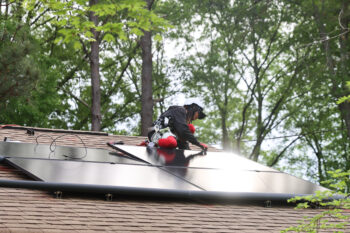Solar Jobs for All: Five Facts on the Rising Solar Workforce
The newly released National Solar Jobs Census sent a clear message: American solar jobs are growing and are available to everyone, from every background, and in every state. Well-paying solar jobs are extending the benefits of America’s solar boom to Americans of all backgrounds — and they are not slowing down any time soon.
Photo courtesy of Nextracker.
The newly released National Solar Jobs Census sent a clear message: American solar jobs are growing and are available to everyone, from every background, and in every state.
The U.S. solar industry is now home to more than 263,000 workers and supports jobs in all 50 states, Puerto Rico, and the District of Columbia. Despite trade uncertainty and supply chain challenges throughout 2022, America’s solar workforce remained resilient and is poised to grow rapidly in the coming years as federal energy incentives continue to drive investment and create economic opportunities in communities across the country.
Well-paying solar jobs are extending the benefits of America’s solar boom to Americans of all backgrounds — and they are not slowing down any time soon.
Here are five things you need to know about the American solar workforce.
1. Gen Z Flocks to the Solar Industry
The solar industry is also attracting a high number of young people.
In 2022, nearly one-third of solar workforce was aged 18 to 29, compared to only 22% of the overall U.S. workforce, indicating that Gen Z workers are capitalizing on the growing number of career opportunities in the solar and storage industry. Additionally, the solar industry is particularly well-aligned with Gen Z’s values. According to recent surveys, 87% of Gen Z workers want to work for a company that supports their values, and 67% of Gen Z believes the climate is a top priority.
Taken together, it is clear that Gen Z’s growing workforce will be an integral part of meeting America’s clean energy and climate goals, and the solar industry has a head start on attracting this critical workforce.
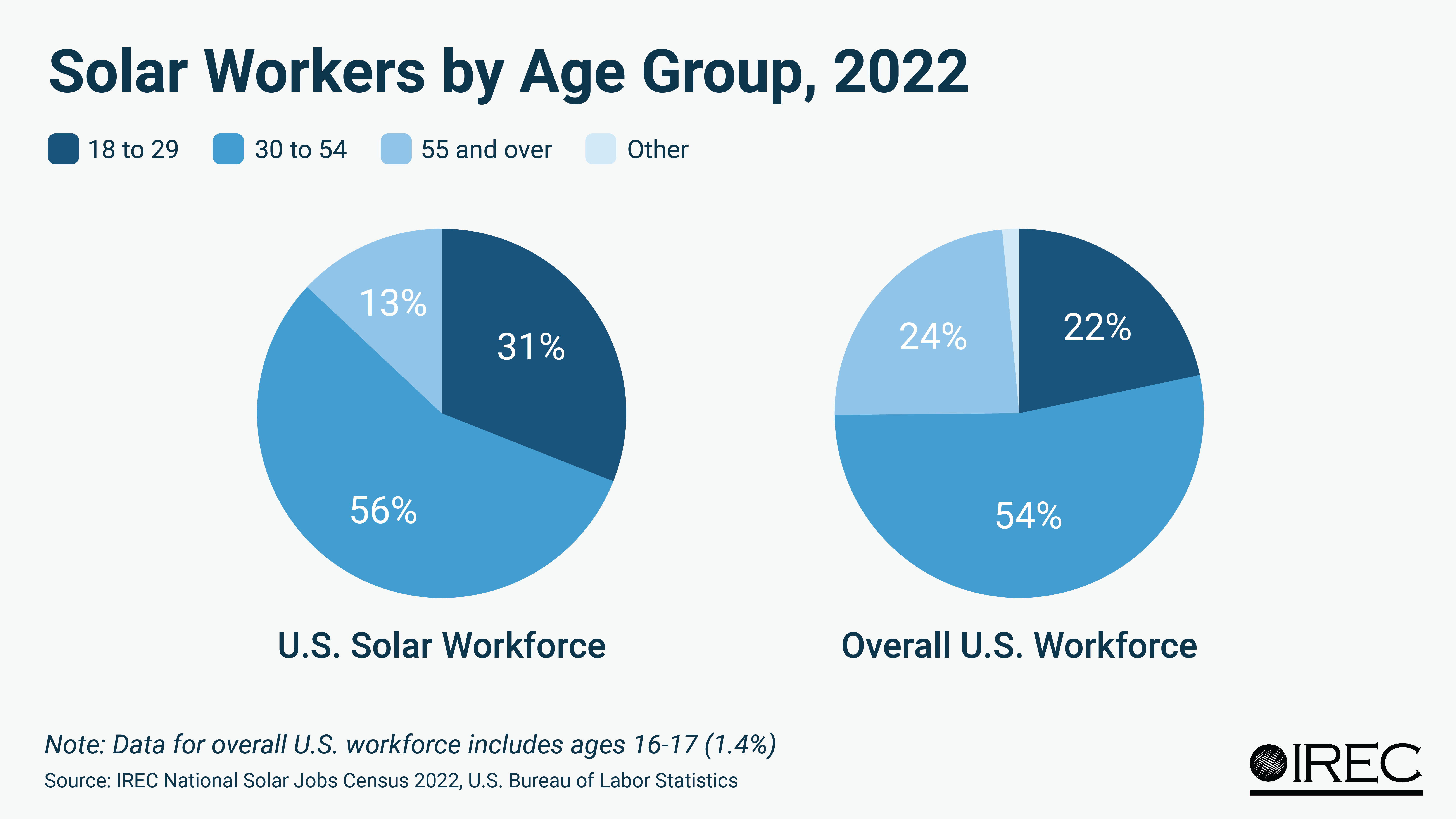
2. Solar Jobs Are Open to All Americans
Clean energy is on track to grow exponentially in the coming years, but to meet the United States’ ambitious clean energy goals, the solar workforce must grow to more than 1 million workers. That means removing as many barriers of entry as possible for prospective workers and investing in training and workforce development programs like the Solar Energy Industries Association’s Solar 101 Program.
In 2022, 57% of all new solar jobs did not require a bachelor’s degree, helping more Americans find a fulfilling career in the solar industry.
In addition, solar and storage companies are working hard to invest in mentorship and training programs to attract and retain talent from all backgrounds, and the industry is seeing early signs of its success. In 2022, 33.6% of solar firms had a general mentorship program, up from 32.5% in 2021.
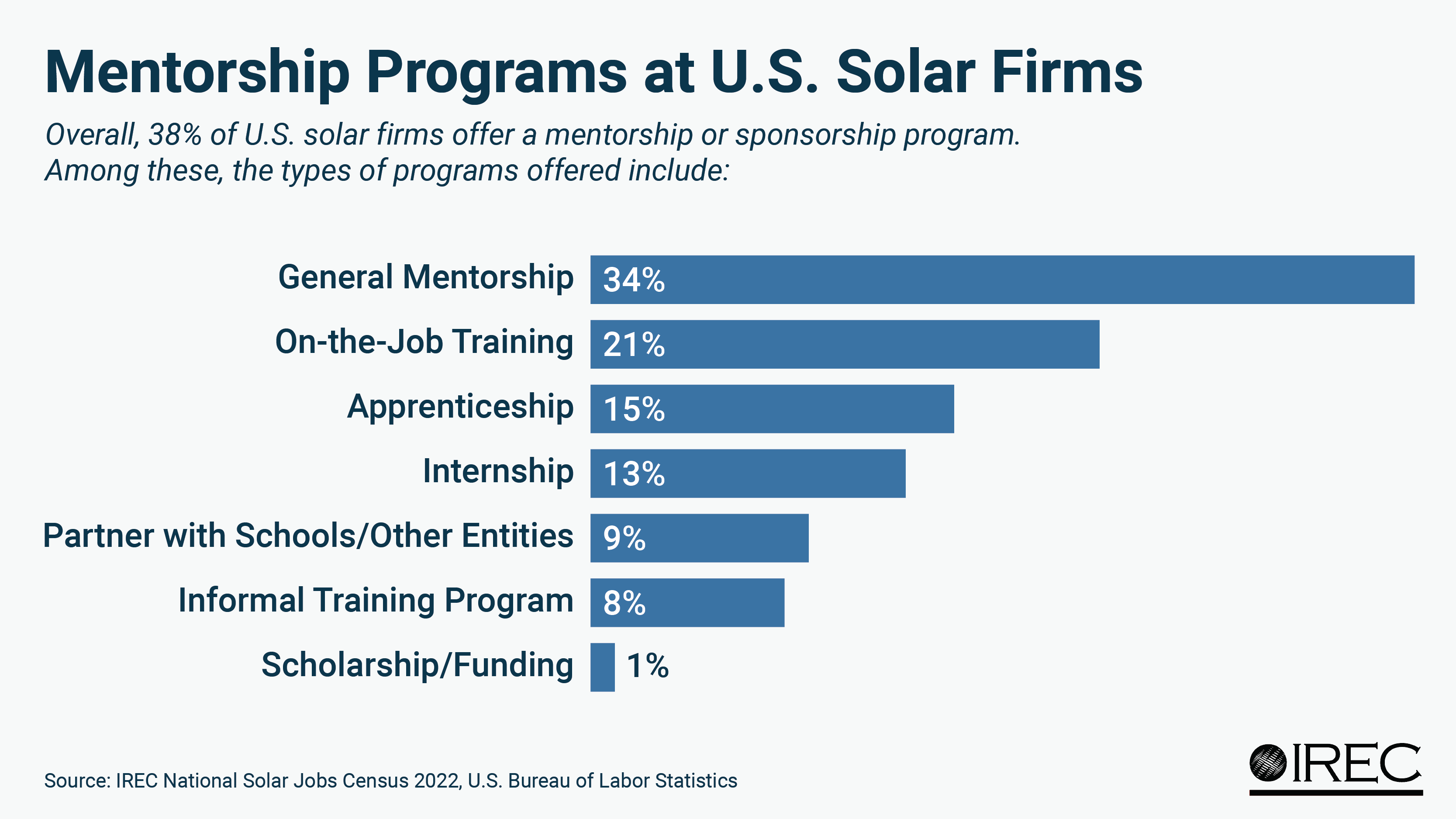
3. Increasing Diversity Strengthens the Solar Workforce
Over the last five years, more women and people of color have joined the solar and storage industry.
The solar workforce now outpaces the overall economy when it comes to employing veterans, Asian, and Hispanic and Latino workers, and companies have made considerable progress welcoming more women to the solar industry.
While this is major progress, equity must be at the center of growing the solar workforce. Investing in education and outreach, prioritizing research and analysis, and forming new or enhanced training programs will all be key in quickly welcoming hundreds of thousands of diverse professionals to the solar and storage workforce.
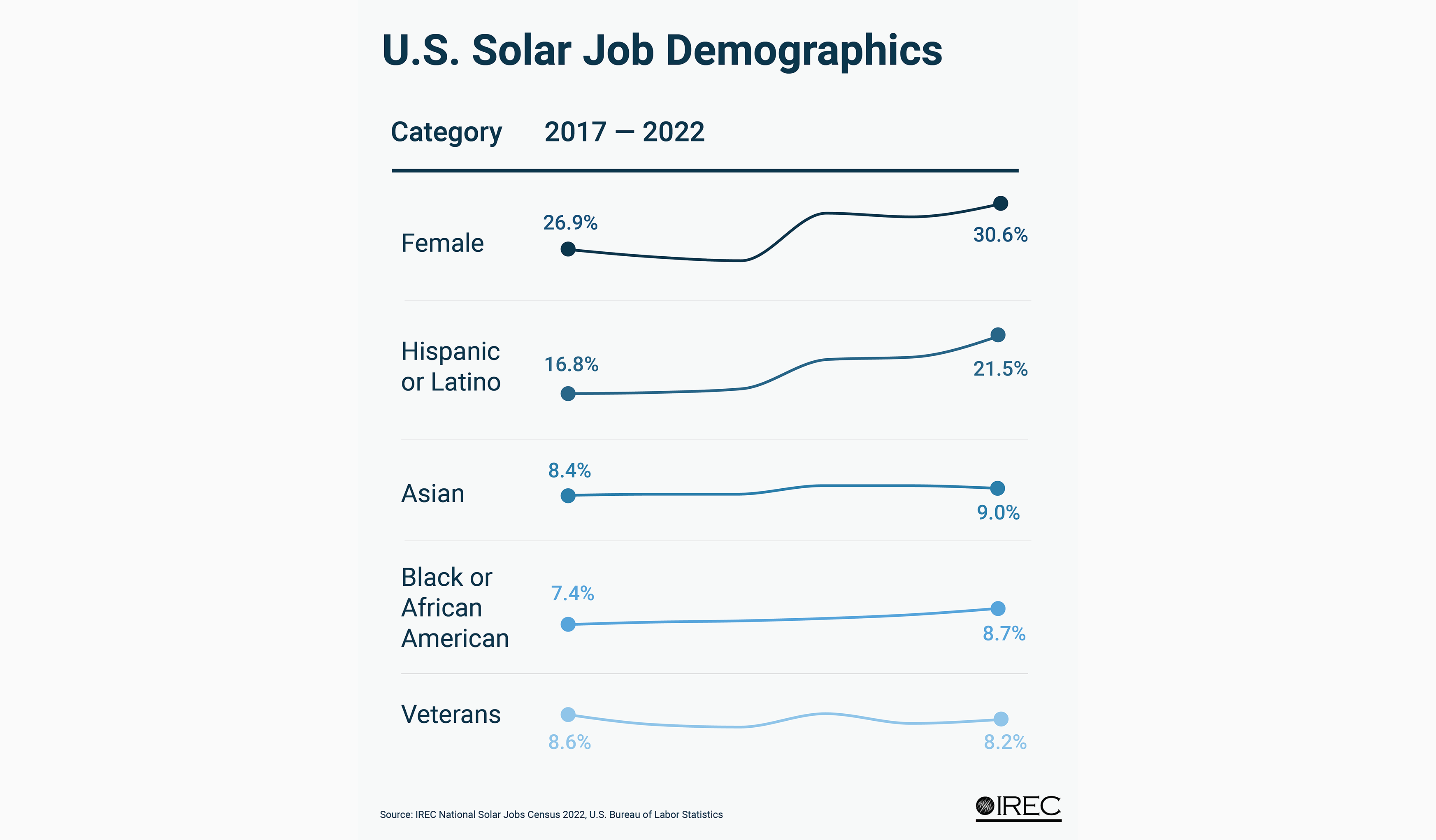
4. The U.S. Solar Manufacturing Workforce is Growing
The clean energy incentives passed in 2022 are now driving American companies to expand their operations and invest billions of dollars in domestic solar manufacturing capacity.
These new factories and facilities are going to create well-paying jobs across the U.S. while strengthening the solar supply chain. Solar manufacturing jobs are expected to more than triple over the next ten years and grow to about 120,000 workers by 2033.
Jobs in solar manufacturing will continue to grow this year as newly announced manufacturing plants come online.
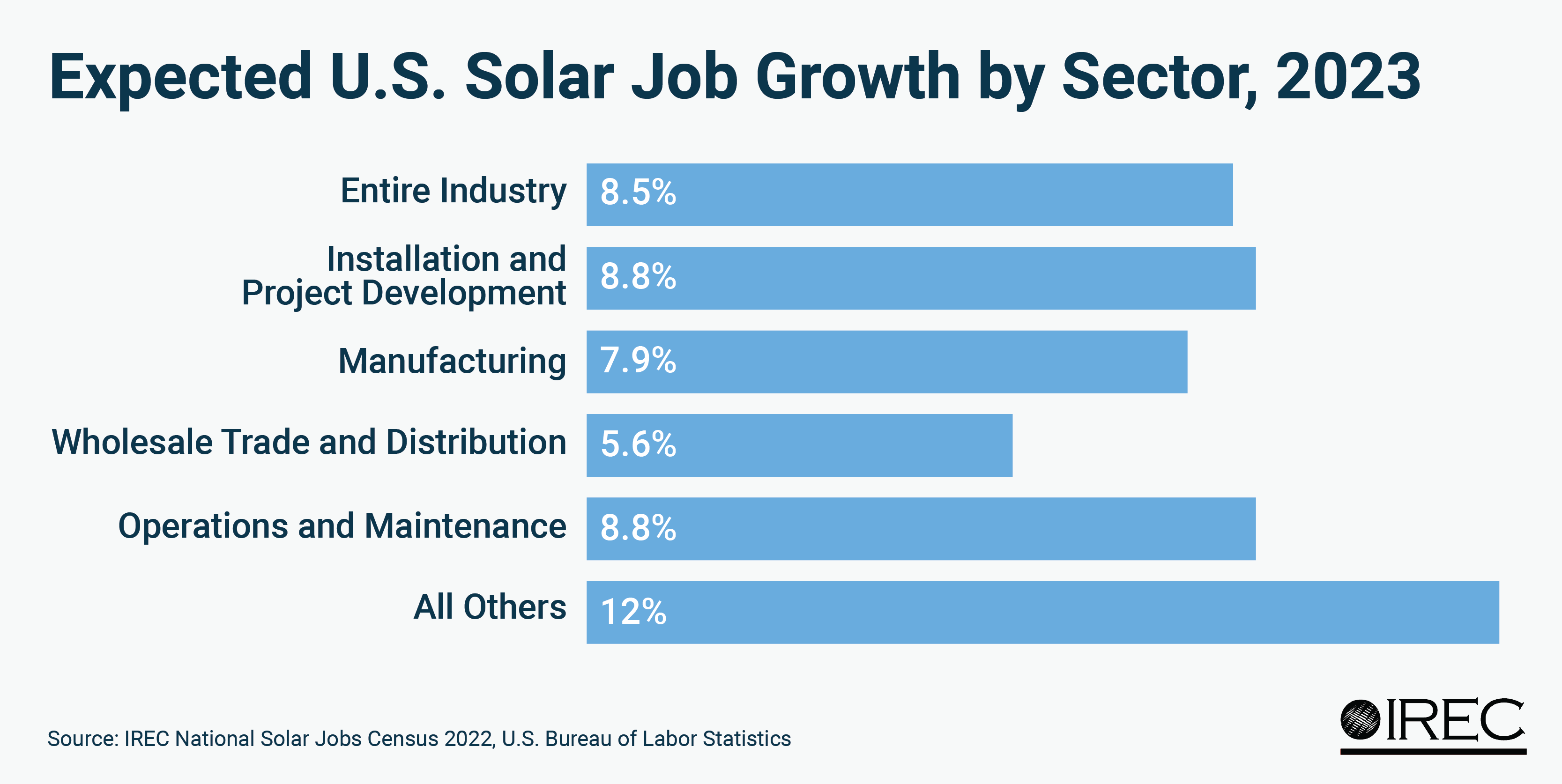
5. Jobs in Clean Energy Storage are Soaring
The solar workforce is helping to provide opportunities in other sectors as well, most notably in energy storage.
Clean energy storage is in the midst of an employment boom, with jobs growing 28% since 2017. Solar and storage jobs work hand-in-hand to boost the reliability and accessibility of power, and federal clean energy incentives are driving demand and solar deployment.
Thanks to clean energy incentives passed last year, the solar and storage industry could add hundreds of thousands of workers over the next decade, helping to get closer to the million workers needed to rapidly decarbonize the grid.
While the United States still has a long way to go, the industry’s current workforce development, training, and mentorship efforts are already paying off and will continue to pay dividends in the future if we stay the course and double down on these efforts.
